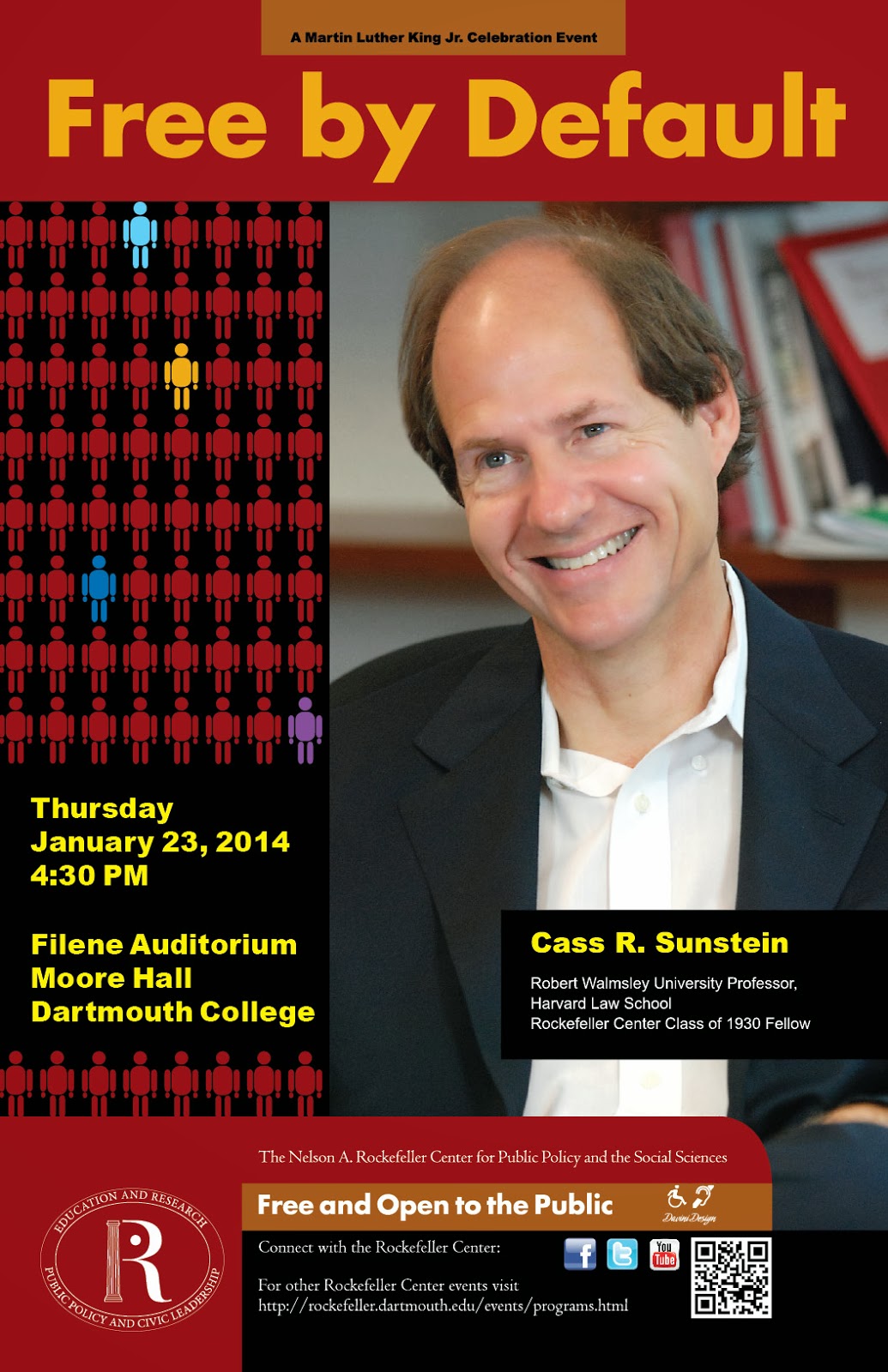- Public Policy
- Leadership
- Funding
- News & Events
- About the Center
Back to Top Nav
Back to Top Nav
Back to Top Nav
Back to Top Nav

When is it appropriate to fill in the gaps of incomplete legal contracts with default rules? More importantly, how do personalized default rules compare to impersonal ones? In the fast-paced U.S. economy, contractual agreements are being found to work to the benefit of individuals, in essence ‘freeing’ them, in a number of interesting ways. Find out exactly how next week with Mr. Cass Sunstein.
As Mr. Sunstein will present, impersonal default rules, chosen by private or public institutions, can establish settings and starting points for countless goods and activities – cell phones, rental car agreements, computers, savings plans, health insurance, websites, privacy, and much more. Some of these rules do a great deal of good, but others are poorly chosen, perhaps because those who select them are insufficiently informed, perhaps because they are self-interested, perhaps because one size does not fit all. The obvious alternative to impersonal default rules is active choosing, by which people are asked or required to make decisions on their own. The problem is that if active choosing were required in all contexts, people would quickly be overwhelmed; default rules save a great deal of time, making it possible to make other choices and in that sense promoting autonomy. It is increasingly possible for private and public institutions to produce highly personalized default rules, which reduce the problems with one-size-fits-all defaults. In principle, personalized default rules could be designed for every individual in the nation. In many settings, personalized default rules offer the advantages of active choosing without the disadvantages. Mr. Sunstein will discuss these phenomena and others next week at his public lecture.
Cass R. Sunstein is currently the Robert Walmsley University Professor at Harvard. He is the founder and director of the Program on Behavioral Economics and Public Policy at Harvard Law School. Mr. Sunstein has testified before congressional committees on many subjects, and he has been involved in constitution-making and law reform activities in a number of nations, including Ukraine, Poland, China, South Africa, and Russia. From 2009 to 2012, he was Administrator of the White House Office of Information and Regulatory Affairs. Mr. Sunstein is the author of many articles and a number of books, including Republic.com (2001), Why Societies Need Dissent (2003), Laws of Fear: Beyond the Precautionary Principle (2005) and most recently Simpler: The Future of Government (2013).
Mr. Sunstein received his BA from Harvard College, and his JD magna cum laude from Harvard Law School, where he was executive director of the Harvard Civil Rights-Civil Liberties Law Review. He served as a law clerk for Justice Benjamin Kaplan of the Massachusetts Supreme Judicial Court and for Justice Thurgood Marshall of the U.S. Supreme Court.
Please join us for “Free by Default”, a Martin Luther King Jr. Celebration Event, with Cass Sunstein on Thursday, January 23 at 4:30 pm in Filene Auditorium, Moore Hall.